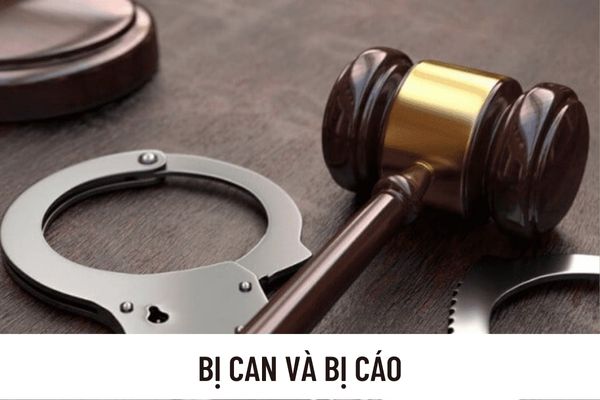Vietnam: What are the guidelines for distinguishing the suspect and the defendant according to the Criminal Procedure Code 2015? When does the suspect become the defendant?
What are the definitions of "suspect" and "defendant" in Vietnam?
According to Clause 1, Article 60 of the Criminal Procedure Code 2015 and Clause 1, Article 61 of the Criminal Procedure Code 2015, "suspect" and "defendant" are defined as follows:
- Suspects are physical persons or juridical persons facing criminal charges. The rights and duties of juridical persons as suspects are executed by their legal representatives according to the provisions of the Criminal Procedure Code.
- Defendants are physical persons or juridical persons tried as per a Court’s decision. The rights and duties of defendants as suspects are executed by their legal representatives according to the provisions of the Criminal Procedure Code.

Vietnam: What are the guidelines for distinguishing the suspect and the defendant according to the Criminal Procedure Code 2015? When does the suspect become the defendant? (Image from the internet)
What are the commonalities of "suspect" and "defendant" in Vietnam?
Both "suspect" and "defendant" are subjects regulated in the Criminal Procedure Code 2015.
If the subject is a legal entity, the rights and obligations of the suspect, and defendant are exercised through the legal representative of that entity.
The suspect and defendant share several common rights and obligations as follows:
- Reaceving information and explanation about their rights and obligations;
- Submitting evidence, documents, objects, and requests;
- Defending themselves or having a defense counsel;
- Expressing opinions on related evidence, documents, and objects, and requesting the competent authority to review and evaluate;
- Making statements, expressing opinions, not being compelled to testify against oneself or admit guilt;- Requesting an expert examination or asset valuation;
- Requesting the change of the competent proceeding official, expert, property valuer, interpreter, translator;
- Complaining against procedural decisions and actions of the competent proceeding authorities;
- If summoned by the competent authority (proceeding official with the suspect, court with the defendant), if:
+ Absent without a force majeure reason or inevitable obstacle, they can be escorted;
+ If they escape, they will be chased.
What are the differences between "suspect" and "defendant" in Vietnam?
According to the Criminal Procedure Code 2015, "suspect" and "defendant" are distinguished based on the following criteria:
|
Criteria |
Suspect |
Defendant |
|
Legal basis |
||
|
Definition |
Suspects are physical persons or juridical persons facing criminal charges. |
Defendants are physical persons or juridical persons tried as per a Court’s decision. |
|
Stage of proceedings |
Prosecution, investigation, indictment stages
|
Trial stage |
|
Rights |
- Being informed of reasons for charges against them; - Receiving the following documents:
|
- Receiving the following documents: |
|
Obligations |
- Presenting according to the summons of the competent proceeding official. |
- Presenting according to the court's summons. |
LawNet
